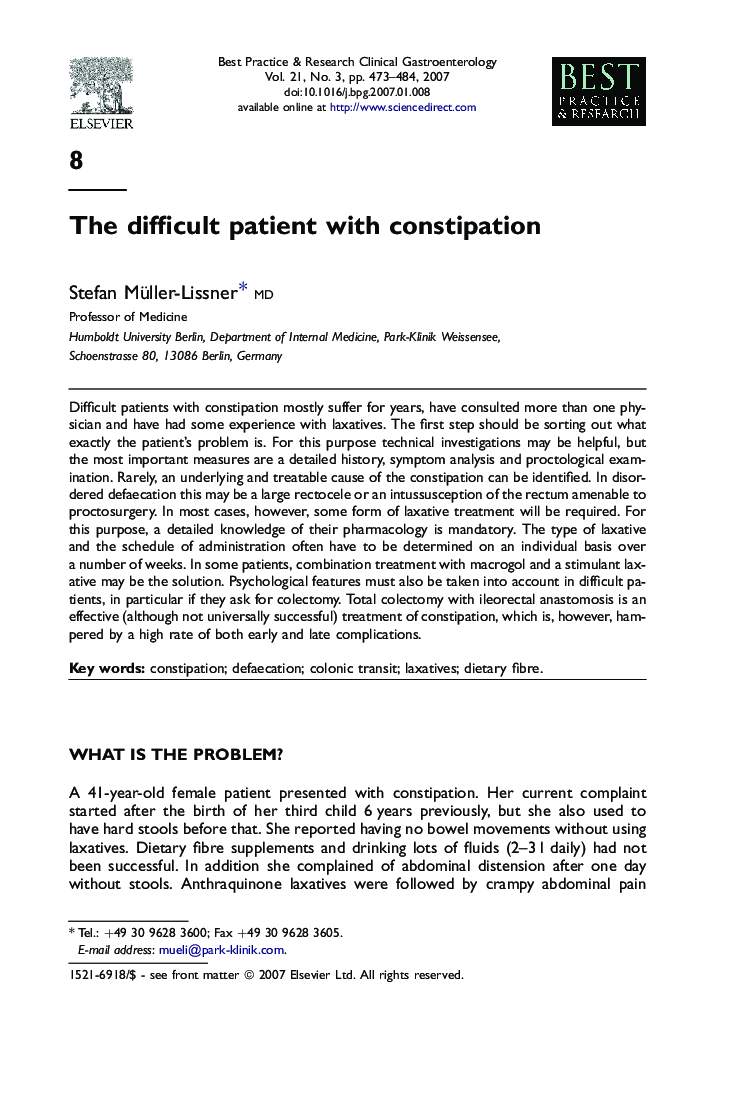| Article ID | Journal | Published Year | Pages | File Type |
|---|---|---|---|---|
| 3254509 | Best Practice & Research Clinical Gastroenterology | 2007 | 12 Pages |
Difficult patients with constipation mostly suffer for years, have consulted more than one physician and have had some experience with laxatives. The first step should be sorting out what exactly the patient's problem is. For this purpose technical investigations may be helpful, but the most important measures are a detailed history, symptom analysis and proctological examination. Rarely, an underlying and treatable cause of the constipation can be identified. In disordered defaecation this may be a large rectocele or an intussusception of the rectum amenable to proctosurgery. In most cases, however, some form of laxative treatment will be required. For this purpose, a detailed knowledge of their pharmacology is mandatory. The type of laxative and the schedule of administration often have to be determined on an individual basis over a number of weeks. In some patients, combination treatment with macrogol and a stimulant laxative may be the solution. Psychological features must also be taken into account in difficult patients, in particular if they ask for colectomy. Total colectomy with ileorectal anastomosis is an effective (although not universally successful) treatment of constipation, which is, however, hampered by a high rate of both early and late complications.
